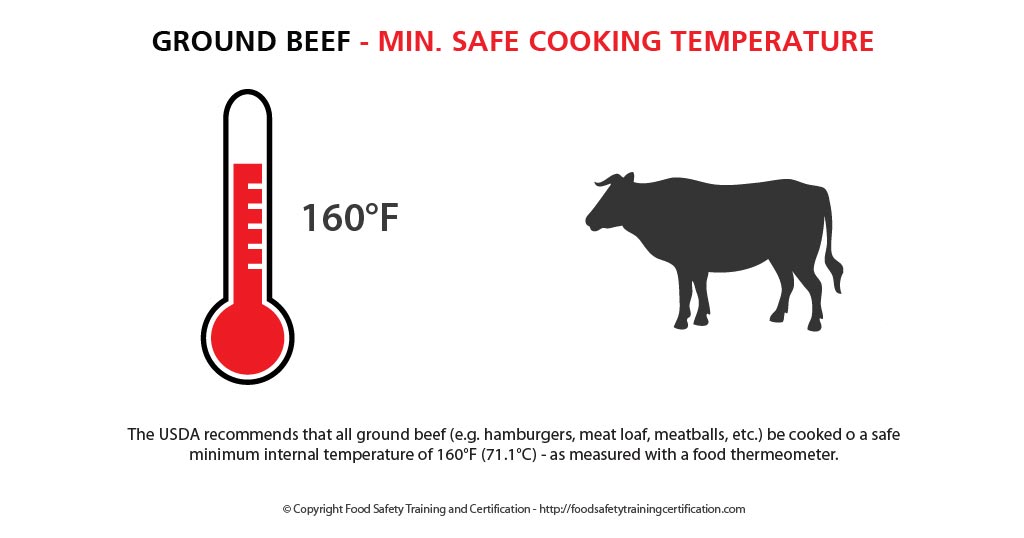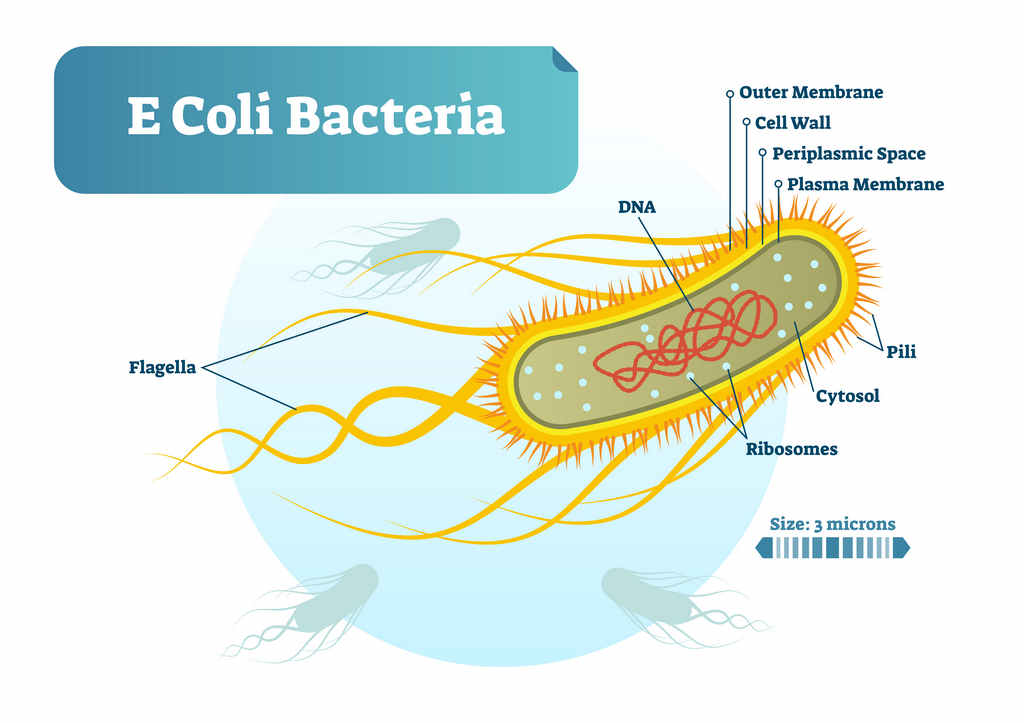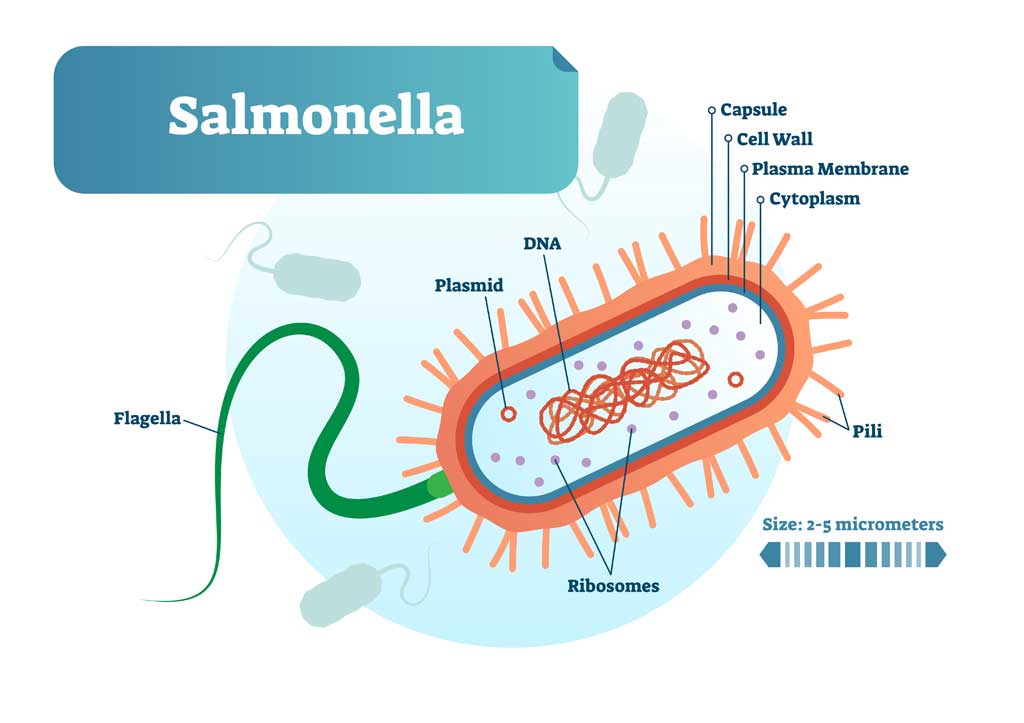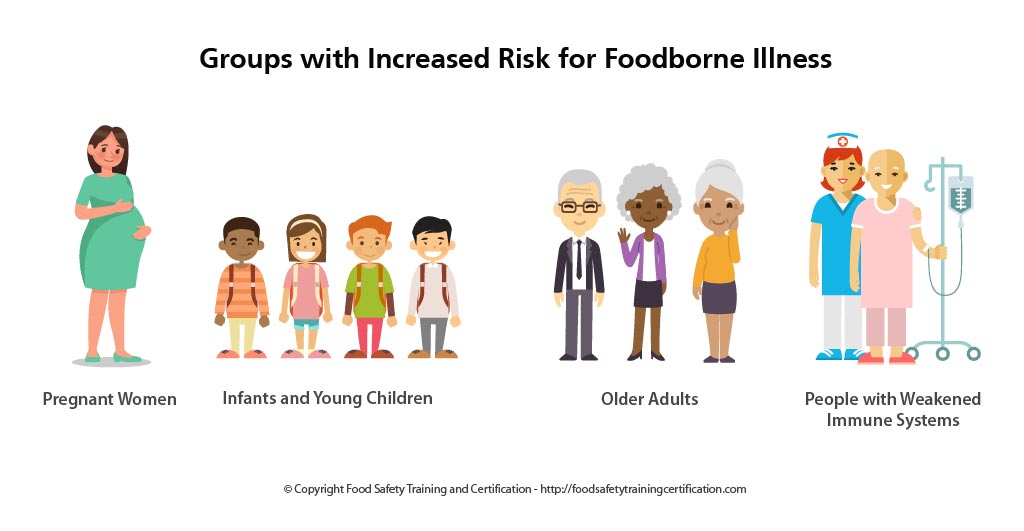Did you know May is National Hamburger Month? There are many ways to make a hamburger, but there is only one way to make it safe! Remember, using a food thermometer is the only way to make sure your burgers are safe – and cook to 160°F or above!
 Image Source: Shutterstock
Image Source: Shutterstock Why is it unsafe to eat undercooked Ground Beef?
Eating raw or undercooked ground beef is dangerous because it may contain harmful bacteria.
When beef is ground, bacteria from its surface are mixed throughout the meat as it is chopped into tiny pieces. That means ground beef—and all other ground meats, must be cooked all the way through in order to kill the bacteria.
div style=”clear: both; margin-bottom: 20px;”>

div style=”clear: both; margin-bottom: 20px;”>
Eating raw beef or even rare cooked beef can potentially make you very sick. Ground beef must be cooked to at least an internal temperature of 160°F.
Some people can get a foodborne illness, also known as “food poisoning”, and not even know they have it. Food poisoning is caused by eating foods that are contaminated.
- Learn about foodborne pathogens, cross contamination, cold and hot food safety, and best practices to prevent foodborne illness.
- Food Manager ANSI Certification: $99.00 - Valid in all States
- Food Handler Training: Only $7.00!
- 10% OFF: Enter Promo Code "train10off" at Checkout
Raw & Undercooked Ground Beef – Bacteria Dangers
Eating undercooked ground beef is one of the main causes of food illness. Most food illnesses are caused by eating foods that have certain types of bacteria or viruses. When you eat these foods, the bacteria keeps growing in your digestive tract. This causes an infection.
E. Coli
Escherichia coli (abbreviated as E. coli) are bacteria found in the environment, foods, and intestines of people and animals. Raw ground beef can be contaminated with bacteria like E.coli. Two of the most common ways to be infected with E. coli are by handling raw ground beef without washing your hands afterwards and by eating ground beef that is undercooked.
Symptoms typically develop 3 – 5 days after eating the contaminated food, with abdominal pain and watery diarrhea predominating. Fever is usually absent. Most people recover in 7 – 10 days.
A small percentage (5 – 10%) of people with E. coli develop a potentially life-threatening complication known as hemolytic uremic syndrome. The condition occurs when bacterial toxins trigger destruction of circulating red blood cells and sudden kidney failure.
 Image Source: Shutterstock
Image Source: Shutterstock Salmonella
The term Salmonella refers to a group of bacteria that cause Salmonella infection, or salmonellosis.
Salmonella is a bacteria that can inhabit the digestive tract of cattle without causing illness in the animals.
Salmonella poisoning is often linked to contaminated water or foods, especially meat, poultry, and eggs. Symptoms include abdominal cramps, diarrhea, and vomiting, which tend to appear 12 to 72 hours after infection.
Most people recover after 4 to 7 days without treatment, but a person with severe diarrhea may need hospital treatment.
 Image Source: Shutterstock
Image Source: Shutterstock Food Illness: High Risk Groups
Eating raw beef poses potentially serious health risks for certain groups, particularly:
- young children,
- pregnant women,
- seniors, and
- people with a chronic illness or weakened immune system — such as those with HIV/AIDS or being treated for cancer, and organ transplant recipients.

Summary
Always cook ground beef to 160°F – as measured with a food thermometer – to be safe.
If you decide to eat undercooked ground beef and develop any signs or symptoms of a foodborne illness, seek immediate medical care.
